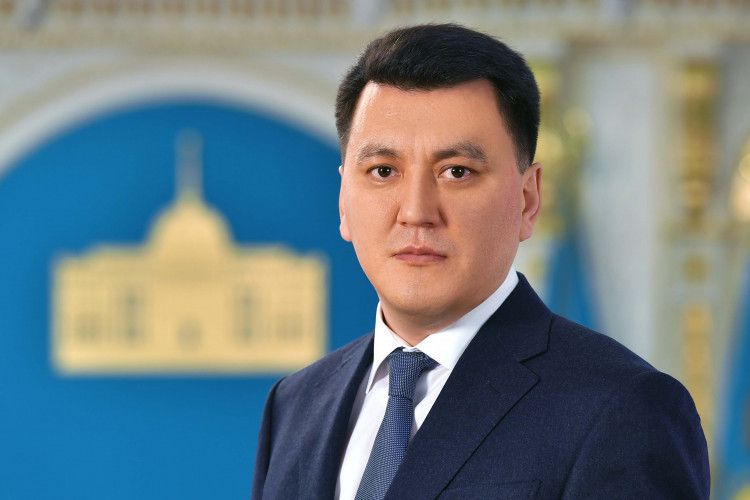ASTANA – The political agenda of 2023 in Kazakhstan will be determined by the vector of political reforms set forward by the country’s leadership, according to State Counselor Erlan Karin.

State Counselor Erlan Karin. Photo credit: Akorda.
“First of all, it concerns the continuation of the practical implementation of the results of the national referendum to update the Constitution of the country,” he wrote in his Telegram channel.
Karin referred to last year’s constitutional referendum that introduced 56 amendments to one-third of the nation’s Constitution. Among the key ones were shifting from a super-presidential form of government to a presidential form of government with a strong parliament, limiting the powers of the President, abolishing the death penalty, and introducing a mixed electoral system in the Mazhilis.
On Jan. 19, President Kassym-Jomart Tokayev announced early elections to the Mazhilis, the lower chamber of the Parliament, and maslikhats, the local administrative bodies, to be held on March 19, after he dissolved the chamber and terminated the powers of the maslikhats.
The idea to hold early elections to the Mazhilis and maslikhats was put forward by President Tokayev in his state-of-the-nation address on Sept. 1.
Mentioning the key features of the upcoming elections, Karin said 29 out of 98 deputies in the chamber would be elected from single-mandate districts for the first time since 2004.
The candidates may be nominated by political parties, non-governmental organisations (NGOs), or self-nominated. The threshold for political parties to get seats in the Mazhilis has been reduced from 7 percent to 5 percent.
Karin also highlighted the importance of a 30 percent quota for women, youth and persons with disabilities on the electoral lists of party lists.
This year, at least seven political parties will compete for seats in the Mazhilis. Two new parties, the Baitak party and the Respublica party, have registered since the amendments came into force.
The state counselor also spoke about the Constitutional Court, which began its work on Jan. 1, 2023.
“It will introduce a new system of protection of fundamental rights of citizens with the new constitutional status of the Human Rights Commissioner and the Prosecutor General’s Office and establishment of the new position of the Ombudsperson for protection of socially vulnerable categories of the population,” he continued.
The court, which consists of 11 judges, ruled its first decision on Jan. 10, repealing the law on the First President that had granted Nursultan Nazarbayev exclusive rights and privileges, including retention of his and his family’s financial wealth and immunity from actions made while president and after.
Describing what 2022 has been for Kazakhstan, Karin said it was “one of the most difficult, but also significant years in the modern history of Kazakhstan.”
“After the January events and amid the rising global tensions, a certain demand for consolidation was formed in the society,” he said, emphasizing the importance of last year’s national referendum and the presidential election. “The society and the state have the same understanding of the prospects of the country’s development. That is why one of the main political results of the outgoing year is that the leadership succeeded in supporting and bringing social consolidation to a new level.”
The establishment of the Ulttyk Kurultai (National Congress in Kazakh) and its first meeting in the Ulytau Region in June were among the key highlights.
Addressing the meeting of the 117-member Kurultai in June, President Kassym-Jomart Tokayev highlighted his priorities – strengthening national unity, communicating the reforms to the population, and expanding public involvement in decision-making.
According to Karin, the Kurultai “develops the practice of a direct dialogue between the President and representatives of the public and the expert community, through which they can personally convey their ideas and proposals.”
Karin further said in 2022 Kazakhstan pursued a more proactive foreign policy.
“Despite the difficult geopolitical circumstances, our country continued to lead a calibrated but dynamic foreign policy. We developed mutually beneficial cooperation with all of our key partners. The president’s visits to China, Russia, Türkiye, the United Arab Emirates, Iran, Qatar, Saudi Arabia, Azerbaijan, France and Uzbekistan gave new content to the multi-vector foreign policy of our country in conditions of global turbulence,” he said.

